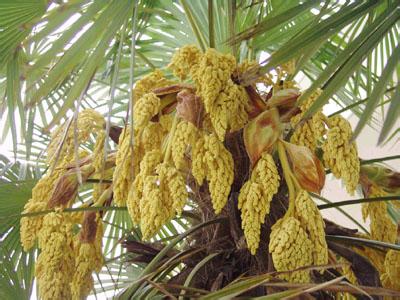Here's a good news/bad news story.
这是需要权衡利弊的报道。
Scientists have been able to dramatically increase the yields for oil palm trees, a crop with a global market.
科学家们已经能够极大地增加位居全球市场前列棕榈树的出油量。
Oil palms grow in the tropics, so that should mean more profit from less land, helping to protect tropical forests.
棕榈树在热带地区才可以种植,所以少量土地即可带来更大的利润,而且还能有助于保护热带森林。
Good news, right?
好消息,对吧?
But in an article in the journal Science, researchers show how the increased yield could in fact lead to even more tropical destruction.
但是在科学期刊上登载的一篇文章中,研究人员指出棕榈油产量的提升实际上会导致更大的热带破坏。
Because as the value of palm oil planting increases, farmers could want to plant on even greater tracts of land.
因为随着棕榈油加工厂的增加,农民就会产生在更多的土地上更大面积种植的想法。
Which is bad news.
这是不利的一面。

Also, a future increase in supply could eventually lead to a decrease in prices.
此外,未来需求量的加大会最终导致棕榈油价格的下降。
So palm oil could out-compete, say, rapeseed oil from Canada.
会出现棕榈油胜过加拿大菜籽油的局面。
Which would lead to an even higher demand for palm oil.
这样的话会导致更多对于棕榈油的需求。
Which is worse news.
如此循环会造成更为糟糕的情况。
In addition, current low yields and high production costs means oil palm is not planted much in Africa and South America.
此外目前的低产量和高成本意味着棕榈树在非洲和南美洲并非大面积种植。
But higher yields could make oil palm attractive to planters in those regions, leading to even more tropical forest destruction.
但是更高的产量会吸引这些地区的种植者们,造成更多的热带森林遭到破坏。
To prevent these developments, the researchers write that policy makers need to be aware of and plan for the unintended negative consequences of technical advances.
为了阻止上述情况,研究人员表示政策制定者们需要有所意识并且规划科技进步所产生的消极后果。
Which would be good news.
这应该是个好消息。


